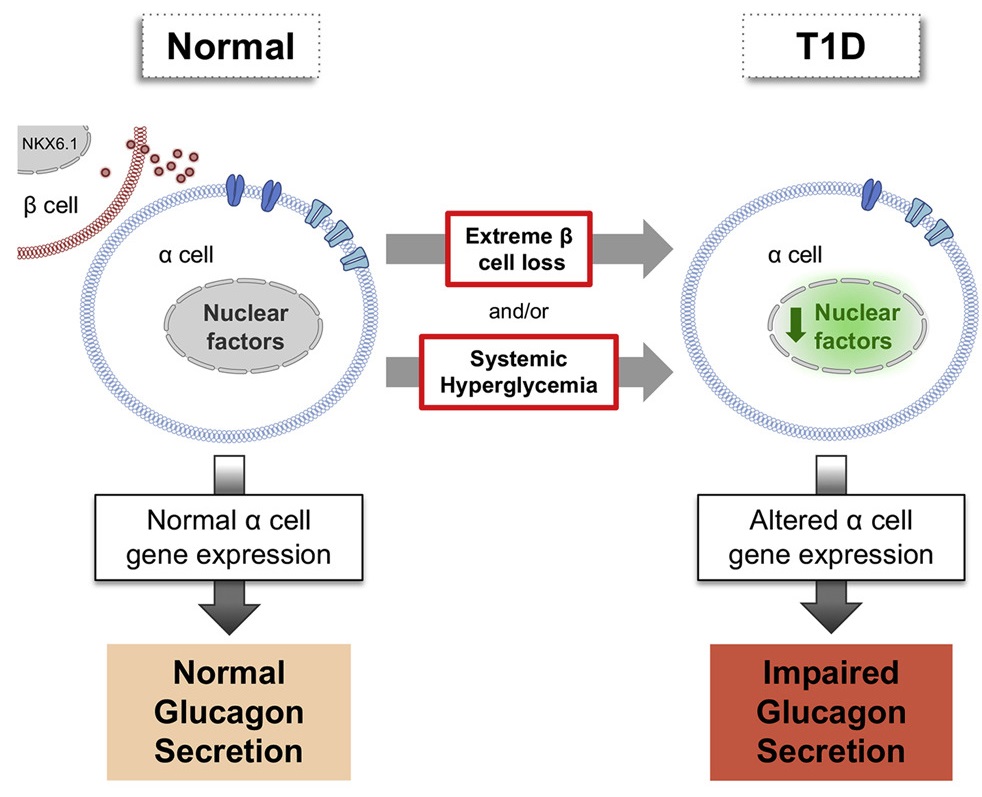Current Type 1 Diabetes Research
Human Cell Beta Biology
Current basic research in the Harlan lab focuses on exploring beta cell biology and the anti-beta cell immune response underlying type 1 diabetes (T1D). We have developed innovative techniques to sort human pancreatic islet endocrine cell subsets, including from donors with type 1 and type 2 diabetes, to determine the transcriptome from those purified cells.
Human islet-infiltrating T cell biology: Reactivity, structure & function
Fully characterizing T lymphocytes procured from the islets of individuals who have died after being diagnosed with type 1 diabetes.

Improving islet isolation of pancreatic islets in T1D to assess alpha cell function and gene expression
As investigators studying pancreata procured from individuals with long-standing T1D, the Harlan lab has uncovered invaluable information about pancreatic beta cells and islet infiltrating T cells. We have also learned that the islet isolation process is quite unlike that from non-diabetic donors without T1D, and that alpha cells from donors with T1D are also quite different.
Improving Diabetes Care Delivery Systems
T1D Exchange
Designed to harness the power of type 1 diabetes patients to help themselves, clinicians and researchers have improved patient management and conducted new and collaborative research, in real time.
Psychological excellence in diabetes training initiative
Our goal is to prepare more behavioral psychologists to care for people with diabetes and systematically investigate relevant research questions.
Insulin Dependent Diabetes Mellitus
Alpha cell plasticity in human type 1 diabetes
Addressing whether alpha cells might display evidence of plasticity, e.g. whether the metabolic and immunologic pressures associated with T1D might lead to an alpha cell phenotype intermediate between that found in a control subject’s alpha and beta cells.
Tolerance Mechanisms and Organ/Tissue Transplantation
Type 1 diabetes humanized mouse avatars
We are recapitulating T1D in humanized mice using induced pluripotent stem (iPS) cells derived from T1D donors to generate beta cells, thymic epithelium, and hematopoietic stem cells that are transplanted into immunodeficient mice to observe their interaction.
Stage-specific beta cell response and biomarker profile during virus-induced type 1 diabetes
Using novel technology to recover small RNA from circulating plasma and perform RNAseq in the virus-induced BBDR rat and in our new model of Coxsackie B4-infected immunodeficient mice engrafted with human islets that will permit us to identify human miRNA signatures.
Advanced biomaterials and delivery systems for islet encapsulation
Investigating the ability of various capsules to protect porcine islets from rejection when transplanted into immunocompetent rats.
HLA Class II antigen processing and presentation pathway components demonstrated by transcriptome and protein analyses of beta cells from donors with type 1 diabetes

